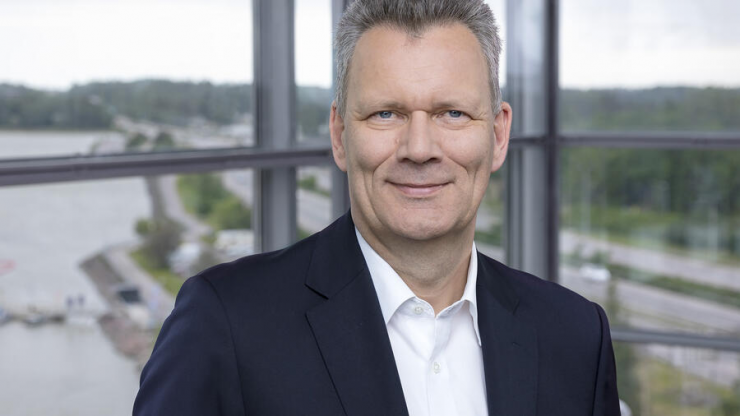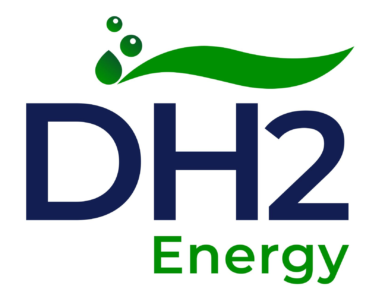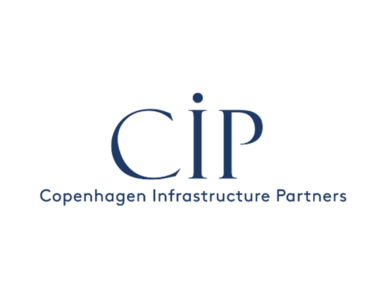Uniper boss Klaus-Dieter Maubach: “Blue hydrogen can be a permanent solution”, Handelsblatt.
This is a translation from an original interview in German by the Handelsblatt
Germany wants to concentrate significantly on green hydrogen, which is generated with the help of renewable energies, in the restructuring of the energy industry. Klaus-Dieter Maubach, head of the Uniper energy company , thinks this is a mistake. “I think it’s wrong to focus on green hydrogen now,” Maubach said in an interview with Handelsblatt – the first after the surprising change at the top of the company.
The manager is campaigning for so-called blue hydrogen. This is considered controversial because it is produced with the help of fossil natural gas. In combination with CO2 separation or the further use of solid carbon, blue hydrogen could “also be a permanent solution,” says Maubach.
🔥 What about we co-host a webinar? Let's educate, captivate, and convert the hydrogen economy!
Hydrogen Central is the global go-to online magazine for the hydrogen economy, we can help you host impactful webinars that become a global reference on your topic and are an evergreen source of leads. Click here to request more details
Maubach previously headed the Uniper Supervisory Board and at the end of March succeeded Andreas Schierenbeck, who had only taken over the chief position in June 2019. With the recent change at the top, the Finnish energy company Fortum has finally brought the electricity producer under control after years of takeover struggle.
Fortum began joining Uniper in 2017 and met fierce opposition at the time – the Finns now hold 75 percent of the shares. “We are no longer an independent company, but we are still an independent company,” explains Maubach.
The new package of measures by the European Commission poses major challenges, especially for fossil energy companies such as Uniper. “Governments, courts and also our customers put a lot of pressure on,” says Maubach. “The pressure from outside helps us to keep the pressure high internally and to consistently realign ourselves.”
The 59-year-old emphasizes that, together with Fortum, they want to advance the decarbonization of the natural gas and coal company more quickly. In the newly established “Renewables” division, Uniper hopes to generate new sources of income primarily through trading in renewable energies and the planning and construction of wind and solar parks.
Uniper wants to benefit from the predicted hydrogen boom by importing and trading the climate-neutral gas. Participation in production facilities or infrastructure projects are also an option. Uniper recently announced plans for a large-scale hydrogen project in Wilhelmshaven and a strategic collaboration with the oil giant Shell.
Read the entire interview here:
Mr. Maubach, Europe has tightened its climate targets. By 2030, CO2 emissions are to be reduced by 55 percent. Do you think that is realistic?
Europe can do that. Above all, it is positive that emissions trading, the most important market instrument for CO2 reduction, is being further expanded and readjusted. From now on, CO2 savings must be the focus of all measures. I would like to see a certain pragmatism. We should take advantage of all the technological possibilities that can contribute to decarbonization. Fully decarbonised and renewable electricity generation is the right goal. The EU Commission is on the way In some cases, however, very strict requirements and leaves open how the transition can take place in a socially and industrially compatible, but also technically.
Is that a challenge or an opportunity for you as the head of an electricity producer?
Governments, courts and also our customers put a lot of pressure on. But I see that more as an opportunity. We have also committed ourselves to the goal of decarbonization and are stepping on the gas here. The pressure from outside helps us to keep the pressure high internally and to consistently realign ourselves.
In terms of the status quo, however, decarbonization is initially a challenge.
That is absolutely clear. We have already achieved a lot, but we have to go further down. We reduced our CO2 emissions by 50 percent between 2016 and 2019 – we want to halve them again by 2030. The pressure to act has definitely increased.
For climate protectors, however, Uniper is one of the greatest enemy images, after all, with Datteln 4, the company put the last coal-fired power plant on the grid. Are you going to revise the decision of your predecessors again?
Almost all of the power plant has been marketed to our customers. We have long-term contracts and therefore long-term commitments. The coal phase-out date set by the federal government is 2038 at the latest. We will meet our obligations to deliver electricity.
Datteln 4 could remain online until 2038. In view of the more stringent climate protection targets, that is completely unrealistic.
If a German federal government says that it wants to talk again about the coal phase-out, then we are ready to talk about it.
So is it a matter of compensation?
It’s also a question of compensation, yes.
Do you really think it is realistic that Datteln 4 will still generate electricity with coal after 2030?
First of all, I think about what will be until 2030. I want to cut Uniper’s CO2 emissions in half by 2030. In this calculation, Datteln 4 is an important power plant, which will continue to emit CO2. It is the youngest and most efficient coal-fired power station and will therefore be the last to go offline. Everything else will be seen. And as I said at the beginning: We have contracts that have been confirmed by the highest court and we adhere to them.
There should be calculations that show that gas power plants become uneconomical from a CO2 price of 50 euros. That could even go up to 60 euros. Are gas-fired power plants still worthwhile?
This cannot be generally affirmed or denied. It is true that the CO2 price is an important parameter for the economic operation of a plant. However, other important factors are gas prices and the efficiency of a system. In a market environment that is dominated by renewable energies, gas-fired power plants will primarily have an insurance role in the future. This means that they will run less overall, but must be available at the push of a button. The store design must be adapted so that this service is also adequately taken into account in the future.
“We are still an independent company”
You surprisingly took over the chairmanship of the board three months ago, and you have previously been on the Supervisory Board for Fortum. Is the takeover of Uniper, which has been controversial for so long, finally completed?
The takeover is not completed. Nothing has changed in terms of the ownership structure. Fortum previously held 75 percent of the shares in Uniper.
But it’s about the relationship between Uniper and Fortum. In practice, aren’t you just the daughter of a Finnish company?
It is true that we are part of the Fortum Group. We are no longer an independent company, but we are still an independent company. There are two issues that will change: One is the decarbonization strategy, which we want to accelerate further wherever this is possible without major financial damage. The second topic: There is only one future for this company, and that is a common future with Fortum.
When does Uniper want to become climate neutral?
In Europe in 2035, for a total of 2050.
However, this only applies to direct emissions and emissions in the supply chain. Uniper has the largest CO2 emissions with so-called Scope 3, with customers.
Scope 3 is a big topic for us. And we’re looking at that very closely at the moment in order to formulate more concrete goals in a timely manner. We are still the central gas importer in Europe, and I cannot give you any specific targets at this point in time.
Trading in renewable energies is becoming a business area
But you said you wanted to accelerate decarbonization. Then what do you mean by that?
The exit from coal is one area in which we are entering the renewable energy business in electricity generation. We have now set up a renewables area under my leadership and want to build up 1.5 to 2 gigawatts of additional capacity by 2025. And trading in renewable energies is also becoming a major business area for us.
What exactly do you want to do?
There is a huge market that is developing for us right now – and that is trading in renewable electricity. The more the markets mature and the higher the demand, the bigger the business becomes for us, as an experienced commodity trader. This also contributes to the decarbonization of the portfolio.
Are you also benefiting from the new trend towards direct electricity contracts in the renewables sector? More and more German industrial groups are securing their own access to green electricity .
There are very many electricity producers of renewable energies who are looking for customers for their electricity from wind and solar parks. This applies across Europe and beyond. If you want guaranteed payment flows, we are at your disposal. And we can market the electricity we have purchased in an attractive way as a trader for suppliers and consumers.
But companies are doing this pretty much independently at the moment. BASF with Vattenfall and RWE , Covestro with Orsted and Volkswagen also with RWE . What else is Uniper needed for?
Many very large industrial customers have always been very independent when it comes to energy issues. But the topic of green electricity is much more complex than coal-fired electricity, and that is difficult to achieve for many industrial companies. And we see considerable opportunities for ourselves there.
Does Uniper also want to build wind and solar systems?
In our target markets in Europe in particular, we will concentrate on project development, construction and commissioning of onshore wind and solar parks. And then we will have to consider whether we should resell these projects or stay in the operator role.
When can you expect the first project?
Later this year and more towards the wind.
Do you even have the know-how for this in-house, or do you not have to buy in additional expertise?
Together with Fortum, we have set up a business unit for renewables, which will have up to 100 employees. We are already building on Fortums’ considerable expertise in the fields of solar and onshore wind power. And, of course, you need to build up additional skills. Someone who has built a coal-fired power plant cannot automatically develop a wind farm. But we claim to do it ourselves, we are not in that position today. But that’s where we want to go.
Then it would make sense to buy a project developer. You need money for that. You could easily get that from the sale of the Russian business?
In theory that would be correct, yes.
What is preventing you from selling the Russian business?
I am not making any statements about this. We always look at our portfolio. But now is not the time to announce anything concrete with a view to Russia .
Uniper also wants to get into the hydrogen business. How do you rate the potential?
I think the more ambitious our CO2 targets are, the more and sooner hydrogen will play a role. If we want to achieve a largely green energy supply, we will nonetheless need chemical binding energy to stabilize the system. All we know about this today is that hydrogen is the drug of choice. That is why I am convinced that the topic will play a major role.
The National Hydrogen Council considers blue hydrogen, which is produced from natural gas and which stores the resulting carbon dioxide, to be an option until 2025. That would play into Uniper’s cards.
I believe we shouldn’t give the hydrogen any color. I think what we’re doing in Germany is a mistake. It is regrettably again the exclusion of a technology at the beginning of a development stage. I believe that it is wrong to focus only on green hydrogen now. Wherever we can replace coal, oil and natural gas with hydrogen, that helps the climate. It doesn’t matter whether the hydrogen is green or blue. To say from the state, that only green hydrogen is the right one, hinders our ability to advance this transformation faster and as cheaply as possible.
Optimism about Nord Stream 2
So you don’t see blue hydrogen only as a bridge on the way to a green hydrogen economy?
Above all, I want to avoid the hasty restriction. If hydrogen from natural gas is flanked at the point of production through CO2 separation or the further use of solid carbon, it doesn’t have to be a bridge. Then it can also be a permanent solution.
When will Uniper earn money with it?
We are not focusing on hydrogen as a market product. Now we are in a phase where there are small and large pilot projects for which we need government support. It will probably stay that way for the next three or four years. Everything else depends on many factors. Climate targets, CO2 prices, technological progress – then green hydrogen could already be as cheap as blue hydrogen in five years.
Uniper has a stake in Nord Stream 2 . Do you think the project will be completed soon?
Uniper is the financing partner of the Nord Stream 2 project . I think it is on the right track. The first strand has been physically completed, and construction continues on the second. I assume that at the end of the day we will also be able to use Nord Stream 2 as part of the European gas import infrastructure – I am optimistic.
So you think the US will give up its resistance?
At least the signals seem to point towards relaxation. And that’s good. Nord Stream 2 is primarily a private sector project. We therefore do not want to take part in the political discussions on this.
Mr. Maubach, thank you very much for the interview.
READ the latest news shaping the hydrogen market at Hydrogen Central
Uniper boss Klaus-Dieter Maubach: “Blue hydrogen can be a permanent solution”, in German, 07/20/2021








